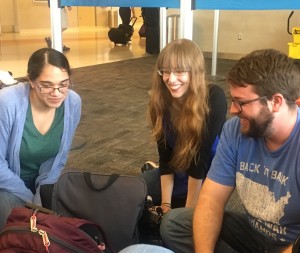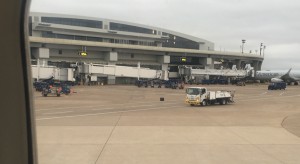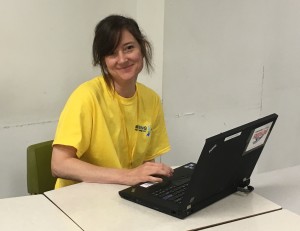
Our 11 days in Texas flew by quickly. It seems like we were just packing our bags to go and now we are already heading home. While our time there was short I feel like we accomplished a lot and made the most of our time. I am very proud of our UIndy team and, as always, inspired by our friends in Texas that work towards positive change on a daily basis.

We started our time at Texas State University assisting members of Operation Identification with skeletal analyses. While there, teams from UIndy and Texas State University completed forensic anthropological analyses on 17 individuals. Next we drove to Houston to participate in Missing in Harris County Day. While there we worked with volunteers from a variety of organizations to collect missing persons reports and educate the community regarding the processes of exhumation and identification. We spent the last leg of our trip in Falfurrias. We helped sister Pam make cloth bags for the Sacred Heart Humanitarian Respite Center, assisted the Forensic Border Colaition in mapping cemeteries in two counties and helped Eddie at the South Texas Human Rights Center to build, repair and fill water stations. If we were able to help just one person with our actions than we were successful.
But our work is not over. We have case reports to complete, case files to manage and plans to make, to name just a few tasks. We will continue to post daily blogs over the next week or so as we reflect upon our most recent trip to Texas. Thank you for reading and please feel free to share to bring awareness to this crisis on our border.
~KEL


